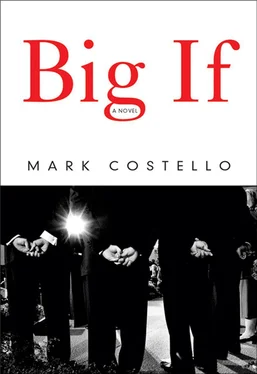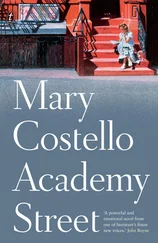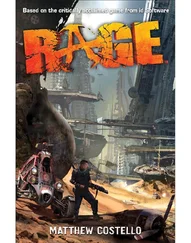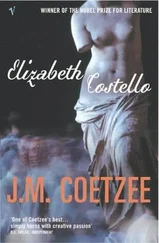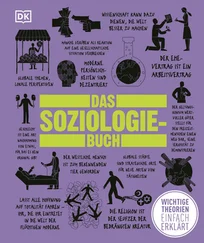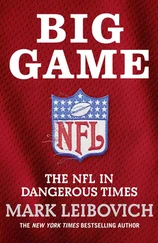The people in the van were called a pull team. The map in Jackie’s lap was marked with hot pink highlighter, indicating target roads and vote-heavy condo courts. Unmarked roads were to be left alone. These orders came from headquarters. Actually these orders came from Tim, a Rhode Island lawyer who hoped to be judge. Tim was the VP’s field director for Region C, boss of Jackie’s pull team. Region C was basically the southern chunk of New Hampshire’s First Congressional District, minus Manchester, which was split into Regions A and B. Tim had explained that Jackie’s team, the teacher volunteers, had to cover the pink areas, but not, absolutely not , any unpink areas, thinking that this skinny bird from Texas was a newbie at pull-teaming. But Jackie was a veteran and she cut him off. She knew all about the pink. She knew that pollsters and phone-bankers and past waves of canvassers had spent months combing the streets and roads and cul-de-sacs along 1A, seeking, door by door (and call by call and questionnaire by questionnaire), the opinions of the citizens, dividing this part of the state into preference categories: the unregistered or otherwise unlikely-to-show-up, who were set aside as meaningless; the likely voters who supported the insurgent senator, the VP’s rival in the primary; the likely-voters-and-weakly-leaning-toward-the-VP; the likely-and-the-strong; and, finally, the undecided. Tim had voter lists, big fanning printouts identifying residents by name, age, address, home phone, and a two-digit poll code, 01 for meaningless, 02 for rival, 03 for weak-VP, 04 for strong-VP, 05 for the undecided.
The van was coming into Center Effing. Jackie said, “Now pay attention, y’all. Today we’re doing undecideds, that’s your poll code oh-five, folks, a crucial group of humans — they’ll decide the primary.”
Jackie knew that good pull-teaming was a science and easily screwed up. She had learned the do’s and don’ts on her first trip to New Hampshire when the teachers’ union sent her to Berlin, way the heck up north, and the field director for that area, a lawyer from Ohio, in his zeal to serve the party, had Jackie and the other volunteers knock on every door, wasting a whole morning on the meaningless 01s, who weren’t going to vote no matter what you said, who wouldn’t vote for Jesus against Hitler for Pete’s sake, who simply would not vote , and, as a result, Jackie’s team failed to cover all the pink streets, rich in weak-leaners and undecided voters. Some field operatives believed in hitting the strong-leaners in the days before the primary, just to firm them up; others didn’t, Jackie knew. But everyone agreed — this was the gospel of Get Out the Vote — that weak-leaners were important, second only to the biggest prize of all, the mighty undecideds. They never hit the undecideds in Berlin that year, and though they won the city, they lost Coos County, which they were not supposed to lose.
In Jackie’s second junket to New Hampshire, four years later, they sent her to a gloomy woolen town called Shawgamunk, somewhere between Manchester and Portsmouth. It was the year that Jackie’s husband came down with cancer, and the mills in Shawgamunk, brick, worthless, and deserted, made her ache. Her husband was the offensive line coach at Longmont-Westside, known in local schoolboy football circles as the Greek or Pete the Greek or Mustache Pete, or sometimes Nick, even though his name was Theodore, called Thea (to rhyme with me and he and we ), and his real nickname, since Chicago as a kid, had always been Tiny, because he was enormous. Jackie didn’t want to go to New Hampshire that second time, but Thea said she needed a break from her nursing duties, so she went to Shawgamunk, and the field director got his codes reversed and sent his pull team in a snowstorm to a neighborhood of 2s (strongly-leaning-to-the-other-side). The neighborhood was up and down a steep hill, dirty clapboard houses, people on relief. Jackie sensed a problem halfway up the hill. She tried to tell the field director, “You know, I’ve got a feeling, these people seem pretty much against us.” The field director, another haggard lawyer with ambitions and bad breath, told her to knock on doors and keep her big yap shut, and she did, pushing through the snow, getting out the hostile vote, the vote against them, and they lost Shawgamunk by forty votes that year. The image stayed with Jackie for a long time — Texans in the snow, full of pep and spirit, beating themselves with each trudging step.
They were past the motels now, condos on both sides. The nicer ones, on the left, had soothing pluraled nature-names carved on hanging wooden signs, The Coves, The Glades, The Meadowlands. The cheaper condos, on the right, were smaller and closer to the road, and had names like roaring powerboats, Seaspray, Barracuda’s, and Beachcomber III.
Jackie sneezed, a snippy poodle kind of sneeze, God-blessed herself, and said, “I bet it’s on the left, Raymond. You better slow down.”
Raymond Rios, the driver and young science teacher to the bright and gifted, didn’t nod or really hear. He was thinking of the motels they had passed and the problem with the signs, NO VACANCY . This message bothered him, he couldn’t decide why. Then Jackie sneezed and it came to him, the motels said no vacancy because they were closed for the season (or off-season or not-season) and were, therefore, totally vacant, as vacant as they ever got, and so the sign, NO VACANCY , was maximum-inaccurate, yet he understood exactly what it meant. This thought or chain of thoughts made him feel vacant and relaxed, done with a problem, a pleasant empty feeling driving by the beaches in the wind.
They pulled into The Bluffs, a cluster of new units, the first location of the day. They took the speed bump gently, came around the half-moon drive. Jackie was talking to the other volunteers, explaining how you pull-teamed, the purpose and the tactics of the thing. Normally, she said, they would drop a group of workers here, two or three teams of two people each. The teams would knock on doors as Raymond took the others to their respective drop-off points. Raymond would then circle back, picking up the first group, who would by then be done, and the next group, and the next, and finally the last dropped-off, who would by then be done, but many of the Texans were doing their first canvas and the pink neighborhoods were scattered down to Rye, and Jackie thought it would be best to stick together and use The Bluffs as a training ground.
They parked in front of a fenced-in playground, got out, and stretched their legs. Jackie was saying things like split up, take opposite sides, call folks by their names, Mr., Ms., don’t say Miss or Mrs. (Yankee women get offended). Suddenly she stopped, struck with another image, not squandered Texas pep, the Shawgamunk disaster, futility in snow, but how this moment, here and now, was so like her dead husband teaching blocking to his linemen, pulling guards and you flare out to pick up the nickel stunt, and how she often watched him on a dusty practice field, Jackie sitting in the bleachers, not liking football much, not understanding nickel stunts, but her husband did, and he would have understood this too, check your lists and don’t get lost and look enthused and let’s be a team here, folks. So much depends on pep and spirit, Jackie thought, your attitude to life, and she stopped talking to the volunteers because the image of her husband teaching blocking made her glad and weepy all at once, and what the heck was that?
Raymond was pulling boxes from the back of the van. The boxes held the flyers and glossy issue packets, stacks of flyers tied together, which Jackie knew enough to call the literature.
Across the road, in Eight The Bluffs, a faux-weathered A-frame on the rocky point, Jens Asplund was sitting in his breakfast nook with his wife and son. Jens was tapping at his laptop, writing code. The code he wrote was destined for a file called SmoShadow.exe, which Jens needed for a meeting at his office. Jens’ office was in West Portsmouth, where BigIf leased a disused building on a former Air Force base. The basement of the building, dug and reinforced in the ’50s as a bomb shelter, now held a ring of mighty servers — big computers — on which the game was running at all times. Sitting in the breakfast nook, Jens was hunched in concentration, drinking his fourth mug of Glucola, a fizzy, reddish beverage, naturally sweetened, loaded with caffeine, which he favored over coffee, water, and most types of food.
Читать дальше
